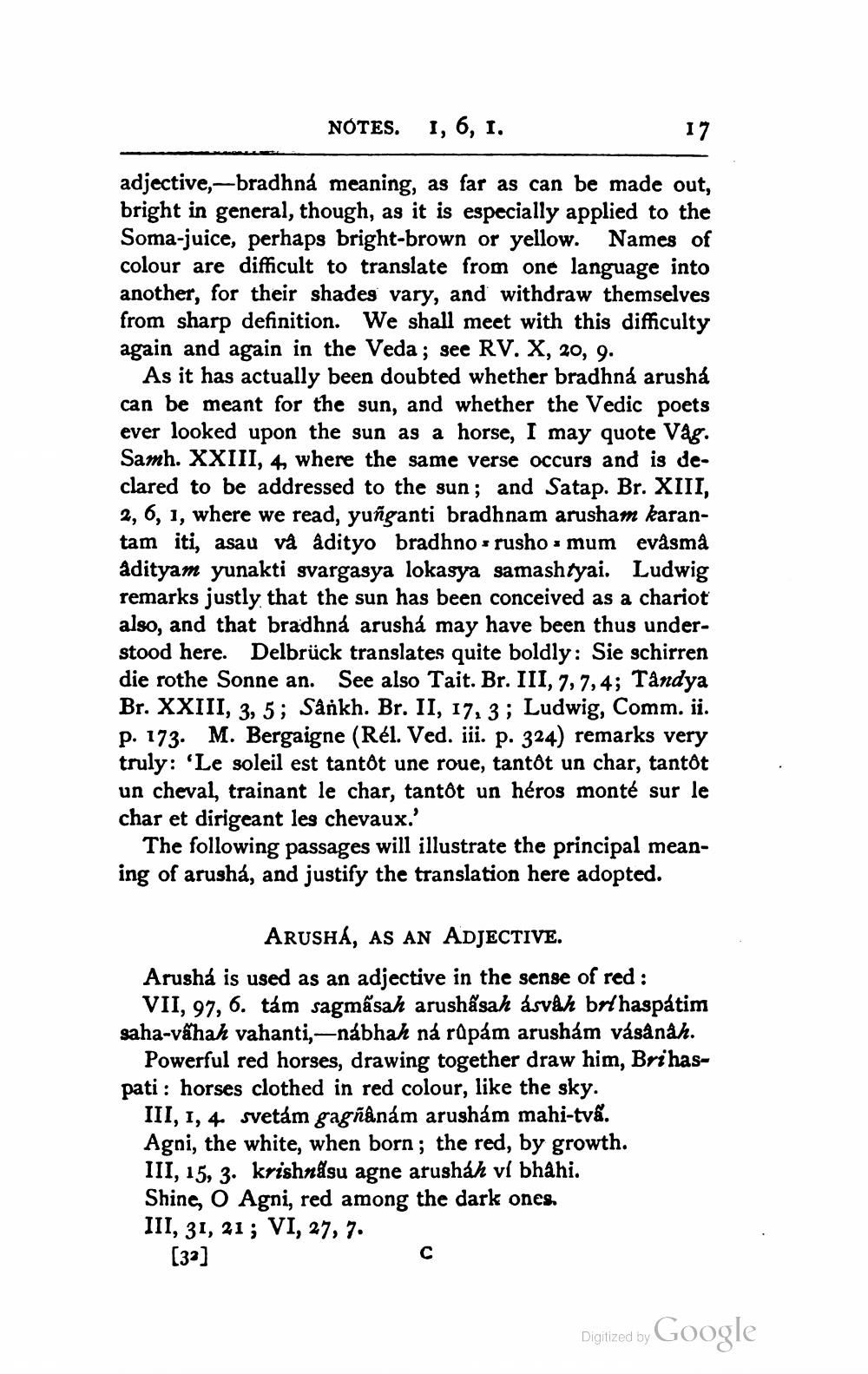________________
NOTES. 1, 6, 1.
17
adjective,-bradhna meaning, as far as can be made out, bright in general, though, as it is especially applied to the Soma-juice, perhaps bright-brown or yellow. Names of colour are difficult to translate from one language into another, for their shades vary, and withdraw themselves from sharp definition. We shall meet with this difficulty again and again in the Veda; see RV. X, 20, 9.
As it has actually been doubted whether bradhna arusha can be meant for the sun, and whether the Vedic poets ever looked upon the sun as a horse, I may quote Vag. Samh. XXIII, 4, where the same verse occurs and is declared to be addressed to the sun; and Satap. Br. XIII, 2, 6, 1, where we read, yuñganti bradhnam arusham karantam iti, asau và âdityo bradhno s rusho: mum evasma adityam yunakti svargasya lokasya samashtyai. Ludwig remarks justly, that the sun has been conceived as a chariot also, and that bradhna arusha may have been thus understood here. Delbrück translates quite boldly: Sie schirren die rothe Sonne an. See also Tait. Br. III, 7,7,4; Tåndya Br. XXIII, 3, 5; Sankh. Br. II, 17, 3; Ludwig, Comm. ii. p. 173. M. Bergaigne (Rél. Ved. iii. p. 324) remarks very truly: 'Le soleil est tantôt une roue, tantôt un char, tantôt un cheval, trainant le char, tantôt un héros monté sur le char et dirigeant les chevaux.
The following passages will illustrate the principal meaning of arusha, and justify the translation here adopted.
ARUSHA, AS AN ADJECTIVE. Arusha is used as an adjective in the sense of red :
VII, 97, 6. tám sagmãsah arushấsah ásvih brl haspatim saha-váhah vahanti,-nábhah na rūpám arushám vásânåh.
Powerful red horses, drawing together draw him, Brihaspati : horses clothed in red colour, like the sky.
III, 1, 4. svetám gagñànám arushám mahi-tvá. Agni, the white, when born; the red, by growth. III, 15, 3. krishnásu agne arushah vs bhahi. Shine, O Agni, red among the dark ones. III, 31, 21; VI, 27, 7.
[32]
Digitized by Google




